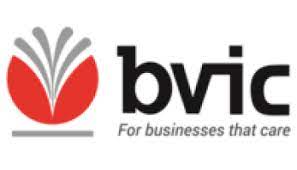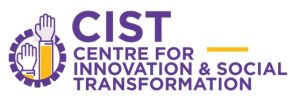
The Centre for Innovation and Social Transformation has a goal to help students contribute to socio-economic environmental growth in various communities. Encouraging innovative thinking and problem-solving skills, CIST gives students the opportunity to work with local community members, and identify their most pressing challenges. They then design and develop technology –based solutions, to improve the quality of living in these areas. Through capacity building and community- based learning programs, CIST aims to instill principles of Sustainable Development and United Nations Sustainable Development Goals (SDG’s). Students involved in CIST activities are expected to emerge as leaders in the community, with a high sense of moral and civic responsibility towards the development of the country.
The Vision:
To become a centre of Excellence that fosters an ecosystem to promote engagement, innovation, and research leading to sustainable socio-economic development in the community.
The Mission:
- To inspire faculty and students to become innovators and change makers who promote sustainable living and development in the community.
- To facilitate reciprocal partnerships with rural communities through community-based learning experiences designed to identify and solve real-time problems.
- To provide students with service-learning experiences in collaboration with non-profit organizations to develop student-driven innovations aimed o achieve the UN’s Sustainable Development Goals.
- To undertake research projects in partnership with local communities through community-based participatory research methods.
Core Team:
| S.No | Name of the faculty | Position | Department |
| 1 | Dr. Rohit Kandakatla | Director | ECE |
| 2 | Mrs. P. Samyuktha | Head | EEE |
| 3 | Mr. B. Lingam | Associate Head | EEE |
| 4 | Mrs.Sandhya Tuti | Member | ECE |
| 5 | Mrs.Chandana | Member | MBA |
| 6 | Mr.D.Srinivas | Member | EEE |
| 7 | Dr.S. Venu Kumar | Member | ME |
| 8 | Mr. A. Seshappa | Member | ME |
United Nations Sustainable Development goals:
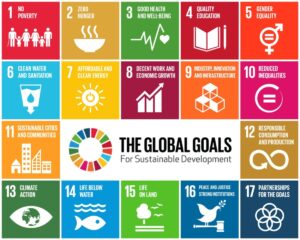
Out of 17 Sustainable Development Goals, KGRCET is mainly focused on the following areas:
| S.No | Focus Area | SDG Logo |
| 1 | Decent work and Economic Growth. | 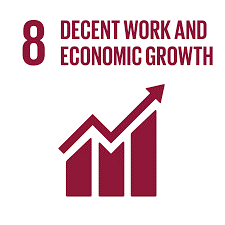 |
| 2 | Industry, Innovation, and Infrastructure. | 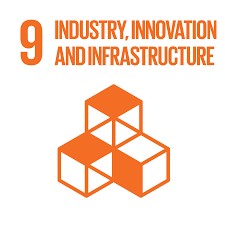 |
| 3 | Climate Action. | 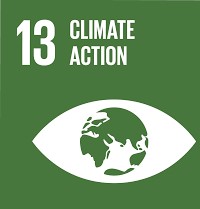 |
| 4 | Affordable and Clean Energy. | 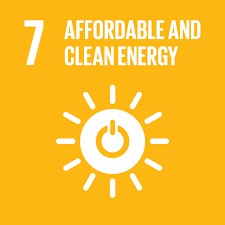 |
| 5 | Sustainable Cities and Communities. | 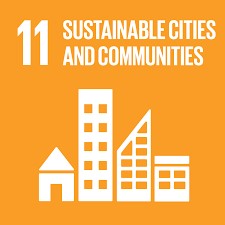 |
| 6 | Clean Water and Sanitation. | 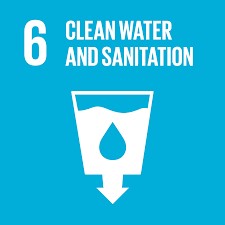 |
| 7 | Quality Education. | 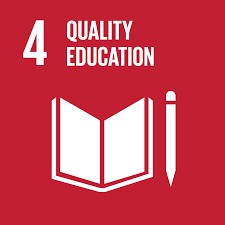 |
| 8 | Gender Equality. | 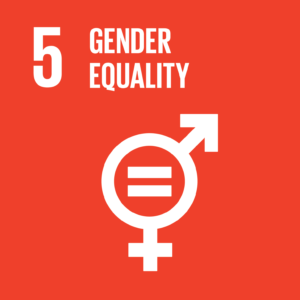 |
| 9 | Zero Hunger. | 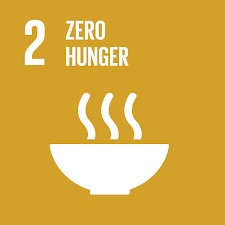 |
Courses Offered:
| S.No | Course | Year | Semester |
| 1 | Design Thinking and Sustainable Development | I | I |
| 2 | Social Innovation | I | II |
Funded Projects:
| S.No | Funded Project | Funded by | Amount Funded (RS in lakhs) |
Beneficiary Village |
| 1 | Low cost, high speed solar based automated incense stick making machine | TSIC | 1.0 | Sriram Nagar |
| 2 | IoT Based Cooling Chamber | TSIC | 1.0 | Surangal |
| 3 | Grim Reaper Binder | TSIC | 1.0 | Surangal |
| S No | Community Partner | Problem Identified | Proposed Solution |
|---|---|---|---|
| 1 | Sriram Nagar Village | Wastage of flowers cultivated resulting in low income to the farmers | Establishment of small scale manufacturing unit to process flowers into incense sticks |
| 2 | Sriram Nagar Village | Lack of employment opportunities to women from SC/ST communities | Empower women through skilling courses on embroidery and garment design that would enable them to become financially independent. |
| 3 | Sajjanpalle Village | Protection offarm crops from wild animals | Development of solar-powered IoT alert system that detects the presence of wild animals and activates alert signals in the form of light, sound, and text messages. |
| 4 | Surangal Village | Low income of farmers from cultivation for leafy vegetables | Design of indigenous low-cost cold storage system to preserve crops and sell them at the highest market value. |
| 5 | Surangal Village | Bad quality of seeds leading to inconsistent quality of crops | Development of low-cost device to detect DNA of seeds and separate high and low-quality seeds. |
| 6 | Murtuzaguda Village | Difficulty in plucking tamarind and Kala Jamun due to the tall height of the trees. | Design of ergonomic fruit plucking mechanical device |
| 7 | Murtuzaguda Village | Increase in number of middlemen in the agriculture supply chain leading to low income of farmers | Development of e-Marketing platform to sell farmers products directly to the end consumers |
| 8 | Chilkur Village | Segregation and Disposal of waste products | Development of low-cost device to segregate plastic, wet and dry waste. |
| 9 | Sriram Nagar village | Unavailability of Kindergarten School | Design, Construction, and Development of Kindergarten school with integrated, STEM facilities, open play area, and care space to support children learning, health, hygiene, and food needs. |
Activities-2022-23:
Extension Activities:
| Activity | From | To | Participants |
| Gyan Shodh-2 | 27-12-2023 | 29-12-2023 | 27 |
| Workshop on Mission life: Lifestyle for the Environment | 22-12-2023 | 22-12-2023 | 110 |
| Deployments of incense stick making machine and Training at Sri Ram Nagar village | 24-11-2023 | 24-11-2023 | 20 |
| Session on UBA | 17-11-2023 | 17-11-2023 | 20 |
| Inauguration of Engineers Without Boarders (EWB)- KGRCET Student Chapter | 09-11-2023 | 09-11-2023 | 76 |
| Innovation Fund pitch Competition | 07-11-2023 | 07-11-2023 | 56 |
| Students participation in Global Research Conference Paper Presentation Marathon, | 15-11 2023 | 15-11 2023 | 12 |
| APEX SDG &Institute for Education and Industrial Services | 19-11-2023 | 19-11-2023 | 80 |
| Session on Technological Readiness levels and 3D Modelling in Fusion360 | 20-07-2023 | 20-07-2023 | 10 |
| An 8 Week Internship program on Product Design | 22-05-2023 | 12-07-2023 | 45 |
| Pitching Event for ideas scouted | 10-02-2023 | 11-02-2023 | 173 |
| One day Faculty Development Program on Design Thinking | 19-01-2023 | 19-01-2023 | 29 |
| Session on Plastic Waste Management | 16-12-2022 | 16-12-2022 | 184 |
| Presentation of Scoped problem statements | 07-12-2022 | 10-12-2022 | 204 |
| Faculty Training on Design Thinking | 15-11-2 022 | 15-11-2022 | 9 |
| Faculty Development Program on Mentoring Engineering Design Projects | 29-09-2022 | 29-09-2022 | 19 |
Participation Outside:
| Name of the Activity | From | To | Participants |
| Gyan Shodh | 08-06-2023 | 10-06-2023 | 29 |
| Impulse-2023 | 04-02-2023 | 04-02-2023 | 13 |
| Train the trainer Design Thinking FDP at IIIT Hyderabad | 27-01-2023 | 28-01-2023 | 10 |
| ICTIEE-2023 IUCEE Conference Mysore | 03-01-2023 | 07-01-2023 | 2 |
| EDU Summit on Inspiring Innovation for Transforming Planet & People’s Lives | 16-12-2022 | 16-12-2022 | 121 |
| IEEE Smart Cities Futures Summit 2022 | 13-12-2022 | 15-12-2022 | 13 |
| Telangana Assistive Technology Exhibition 2022 | 03-12-2022 | 03-12-2022 | 12 |
Village visits:
| Name of the Activity | From | To | Participants |
| Jaggaipally Village Visit-Interaction with User for problem scoping and Background Research | 08-06-2023 | 08-06-2023 | 61 |
| Solipur Village Visit-Interaction with User for problem scoping and Background Research | 08-06-2023 | 08-06-2023 | 61 |
| Kandur Village Visit-Interaction with User for problem scoping and Background Research | 08-06-2023 | 08-06-2023 | 61 |
| Upparpally Village Visit-Interaction with User for problem scoping and Background Research | 08-06-2023 | 08-06-2023 | 61 |
| Marri Thanda village visit-Problem Scoping | 10-06-2023 | 10-06-2023 | 94 |
| Banjepally village-Interaction with User for problem scoping and Background Research | 11-06-2023 | 11-06-2023 | 50 |
| Chinnapally village visit-Interaction with village people | 12-06-2023 | 12-06-2023 | 70 |
| Surangal Village visit for Gap Analysis | 02-02-2023 | 02-02-2023 | 49 |
| Village visit-Tholkatta Interaction with user for background research | 02-02-2023 | 02-02-2023 | 26 |
| Village visit-Sajjanpally to identify existing solutions for problem statements | 02-02-2023 | 02-02-2023 | 22 |
| Village visit-Nakkalapally Interaction with user for Background research | 02-02-2023 | 02-02-2023 | 22 |
| Village visit-Chilkur Interaction with user for Background research | 01-02-2023 | 01-02-2023 | 22 |
| Village visit-Tholkatta Interaction with user for Background research | 01-02-2023 | 01-02-2023 | 22 |
| Nakkalapally Village visit- for Gap Analysis | 01-02-2023 | 01-02-2023 | 33 |
| Village visit-Sajjanpally to identify existing solutions for problem statements | 01-02-2023 | 01-02-2023 | 32 |
| Surangal Village Visit-To identify Criteria and constraints of problem statements | 06-12-2022 | 06-12-2022 | 16 |
| Nakkalapally Village visit- Interaction with Farmers | 02-12-2022 | 02-12-2022 | 31 |
| Village visit- Surangal To identify Criteria and constraints of problem statements | 02-12-2022 | 02-12-2022 | 31 |
| Interaction with Chilkur Village People | 02-12-2022 | 02-12-2022 | 31 |
| Yethbarpally Village visit- Identifying Criteria and Constraints | 02-12-2022 | 02-12-2022 | 17 |
| Sriram Nagar Village visit- Interaction with Girls and Women | 01-12-2022 | 01-12-2022 | 31 |
| Interaction with Chilkur Village People | 01-12-2022 | 01-12-2022 | 31 |
| Yethbarpally -Village Visit- Identifying Criteria and Constraints | 01-12-2022 | 01-12-2022 | 13 |
| Nakkalapally Village Visit-Interaction with User for Problem scoping and Identification | 01-12-2022 | 01-12-2022 | 13 |
| Nakkalapally Village Visit-Interaction with User for Problem scoping and Identification | 30-11-2022 | 30-11-2022 | 35 |
| Yethbarpally Village visit- Identifying Criteria and Constraints | 30-11-2022 | 30-11-2022 | 27 |
| Chilkur village visit-Interaction with Chilkur village people | 30-11-2022 | 30-11-2022 | 27 |
| Tholkatta Village visit-Interaction with Village people and farmers | 30-11-2022 | 30-11-2022 | 27 |
| Surangal Village Visit-To Identify Criteria and constraints of problem statements | 30-11-2022 | 30-11-2022 | 27 |
| Tholkatta Village visit-Village people and farmers | 24-11-2022 | 24-11-2022 | 31 |
| Sajjanpally Village visit-Interaction with Farmers and Elderly People | 24-11-2022 | 24-11-2022 | 31 |
| Chilkur Village visit- Interaction with Chilkur village people | 24-11-2022 | 24-11-2022 | 31 |
Activities: 2021-22
Extension Activities:
| Activity | From | To | Participants |
| Village Development Plan Poster Presentation | 26-08-2022 | 26-08-2022 | 50 |
| Plastic Waste Management | 23-08-2022 | 23-08-2022 | 108 |
| Ignition of Rural Entrepreneurship for Social Wellness | 02-07-2022 | 02-07-2022 | 90 |
| Introduction to Social Entrepreneurship and Opportunities | 21-06-2022 | 21-06-2022 | 30 |
| Rural Internship | 22-05-2022 | 28-05-2022 | 80 |
| Session on Rural Innovation and Sustainable Development | 07-01-2022 | 07-01-2022 | 30 |
| Sustainable Development of Villages | 06-01-2022 | 06-01-2022 | 30 |
Village visits:
| Activity | From | To | Participants |
| Interaction with Farmers – Yelkaguda village | 15-09-2022 | 15-09-2022 | 30 |
| Interaction with Youth in the village -Peddamangalaram village | 15-09-2022 | 15-09-2022 | 30 |
| Interaction with all village community People – Appoji guda Village | 05-08-2022 | 05-08-2022 | 30 |
| Interaction with Elderly people -Yelkaguda village | 05-08-2022 | 05-08-2022 | 30 |
| Interaction with all village community People –Nagireddiguda Village | 05-08-2022 | 05-08-2022 | 30 |
| Interaction with all village community People –Nakkalapally Village | 05-08-2022 | 05-08-2022 | 30 |
| Interaction with all village community People –Tholkatta Village | 04-08-2022 | 04-08-2022 | 30 |
| Interaction with all village community People –Appareddyguda Village | 04-08-2022 | 04-08-2022 | 30 |
| Interaction with farmers and marginalized groups-Nagireddyguda | 07-07-2022 | 07-07-2022 | 30 |
| Interaction with farmers and marginalized groups-Nakkalapally village | 07-07-2022 | 07-07-2022 | 30 |
| Interaction with farmers and marginalized groups-Tholkatta village | 06-07-2022 | 06-07-2022 | 35 |
| Interaction with farmers and marginalized groups-Appareddy Guda village | 06-07-2022 | 06-07-2022 | 35 |
| Interaction with all Beneficiaries- Yetbarpalle village | 06-07-2022 | 06-07-2022 | 24 |
| Interaction with farmers and marginalized groups- Appojiguda Village | 05-07-2022 | 05-07-2022 | 30 |
| Interaction with farmers and marginalized groups- Peddamangalaram Village | 05-07-2022 | 05-07-2022 | 30 |
| Interaction with Women’s-Bakaram Village | 01-07-2022 | 01-07-2022 | 30 |
| Interaction with Youth Community-Bakaram Village | 01-07-2022 | 01-07-2022 | 30 |
| Interaction with School students and Elderly people –Nakkalapally Village | 30-06-2022 | 30-06-2022 | 30 |
| Interaction with youth and women -Nagireddiguda village | 30-06-2022 | 30-06-2022 | 30 |
| Interaction with youth and women -Tholkatta village | 29-06-2022 | 29-06-2022 | 35 |
| Interaction with youth and women – Appareddiguda village | 29-06-2022 | 29-06-2022 | 35 |
| Interaction with women community -Yetbarpalle village | 29-06-2022 | 29-06-2022 | 24 |
| Interaction with farmer community of Yetbarpalle village | 29-06-2022 | 29-06-2022 | 24 |
| Interaction with Elderly people -Pedda mangalaram village | 28-06-2022 | 28-06-2022 | 30 |
| Interaction with Women community of Medipalle Village | 28-06-2022 | 28-06-2022 | 30 |
| Interaction with Youth and Women –Appojiguda Village | 28-06-2022 | 28-06-2022 | 30 |
| Interaction with School Students –Bakaram Village | 24-06-2022 | 24-06-2022 | 30 |
| Interaction with Youth and Women-Nakkalapally Village | 23-06-2022 | 23-06-2022 | 30 |
| Interaction with School students and Elderly people- Nagireddy guda Village | 23-06-2022 | 23-06-2022 | 30 |
| Interaction with School students and Elderly people-Tholkatta Village | 22-06-2022 | 22-06-2022 | 35 |
| Interaction with School students and Elderly people-Appareddiguda Village | 22-06-2022 | 22-06-2022 | 35 |
| Interaction with Women-Peddamangalaram Village | 21-06-2022 | 21-06-2022 | 30 |
| Interaction with School Children-Medipalli Village | 21-06-2022 | 21-06-2022 | 30 |
| Interaction with School students and Elderly people-Appojiguda Village | 21-06-2022 | 21-06-2022 | 30 |
| Chilkur village Visit | 01-11-2021 | 01-11-2021 | 5 |
| Interaction with women community of Chilkur by Faculty | 27-10-2021 | 27-10-2021 | 5 |
| Interaction of Faculty in Surangal Gramasabha | 08-09-2021 | 08-09-2021 | 4 |
| Interaction With Murthuzaguda farmers by Faculty | 11-06-2021 | 11-06-2021 | 10 |
| Murthuzaguda village visit by Faculty | 26-03-2021 | 26-03-2021 | 10 |
| Surangal Village Visit by Faculty | 03-03-2021 | 03-03-2021 | 10 |
Vision
Unnat Bharat Abhiyan is inspired by the vision of transformational change in rural development processes by leveraging knowledge institutions to help build the architecture of an Inclusive India.
Mission
The Mission of Unnat Bharat Abhiyan is to enable higher educational institutions to work with the people of rural India in identifying development challenges and evolving appropriate solutions for accelerating sustainable growth. It also aims to create a virtuous cycle between society and an inclusive academic system by providing knowledge and practices for emerging professions and to upgrade the capabilities of both the public and the private sectors in responding to the development needs of rural India.
Goals
- To build an understanding of the development agenda within institutes of Higher Education and an institutional capacity and training relevant to national needs, especially those of rural India.
- To re-emphasize the need for field work, stakeholder interactions and design, societal objectives as the basis of higher education.
- To stress on rigorous reporting and useful outputs as central to developing new professions.
- To provide rural India and regional agencies with access to the professional resources of the institutes of higher education, especially those that have acquired academic excellence in the field of science, engineering and technology, and management.
- To improve development outcomes as a consequence of this research. To develop new professions and new processes to sustain and absorb the outcomes of research.
- To foster a new dialogue within the larger community on science, society and the environment and to develop a sense of dignity and collective destiny.
Unnat Bharat Abhiyan at KGRCET
As a participating institute of the program, KGRCET has partnered with 5 nearby villages – Amdapur, Murthuzaguda, Sajanpally, Sri Ram Nagar, and Surangal. Students in the last two years visited the 5 villages to get to know the community members and conduct multiple surveys that helped identify the most pressing challenges in the villages as mentioned below.
| Name of the village | Problems Identified | Faculty Name |
|---|---|---|
| Chilkur |
|
Mrs. Tuti Sandhya |
| Murthuzaguda |
|
Mr. B Lingam |
| Sajanpally |
|
Mr. D Srinivas |
| Sri Ram Nagar |
|
Mrs. P Samyuktha |
| Surangal |
|
Mr. B Lingam |
| Tholkata |
|
Mrs. P Samyuktha |
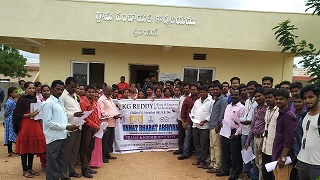
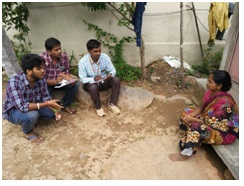
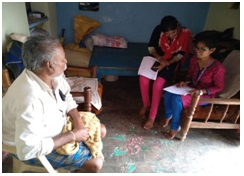
Team
Core Team:
| S.No | Name of the faculty | Position | Department |
| 1 | Mrs. P. Samyuktha | Head | EEE |
| 2 | Mr. B. Lingam | Associate Head | EEE |
| 3 | Mrs.Sandhya Tuti | Member | ECE |
| 4 | Mrs.Chandana | Member | MBA |
| 5 | Mr.D.Srinivas | Member | EEE |
| 6 | Mr. A. Seshappa | Member | ME |
Contact Info

Prof. P Samyuktha
Associate Professor & Head CIST
+91 9700166315
cist@kgr.ac.in

